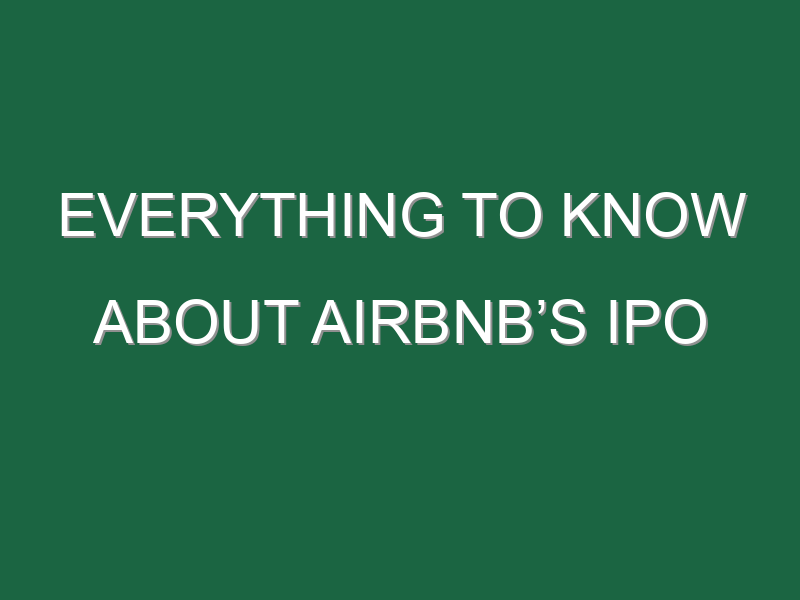What a saga it has been for Airbnb.
The pandemic hit travel first and foremost, leading the home-sharing company to lay off nearly 2,000 of its employees. But from the brink, the company has returned for an IPO.
Here’s the skinny of that IPO, likely to list sometime in December.
COVID-19 hit like a truck: Revenue in the first nine months of 2020 dropped like a stone, to $2.5 billion from $3.7 billion the same period a year earlier. While Airbnb’s sales and marketing costs fell dramatically, the company piled on restructuring and borrowing costs. Net losses ballooned to $696.9 million in the same period, up over double from the same period a year prior. The company’s enviable free-cash-flow metric also turned negative in the period to $520.1 million from a positive $319.8 million.
But the company has come back stronger than many expected: Airbnb has hit profitability once again. After three quarters of straight losses, Airbnb posted net income of $219.3 million in the third quarter of 2020 as marketing costs remained low but consumers began travelling again.
Domestic is its new game plan: “Our business historically has been weighted toward cross-border travel, which accounted for 49% of nights in 2019,” its S-1 reads. But an increase in domestic travel, particularly in the U.S. and Europe, has been responsible for Airbnb’s bounceback. About 77% of bookings in experiences and stays came from domestic travel in September. “Several areas of our business have shown resilience, notably domestic travel, short-distance travel, travel outside of our top 20 cities, and long-term stays,” the filing reads.
Although bookings aren’t at 100%: Airbnb has fared better than many other travel businesses, but the company is not back to pre-pandemic times. Bookings for its stays and experiences in September still remained 28% below the same period a year earlier, while the company has fallen behind every month compared to the same period a year earlier, since March.
And Airbnb still faces legal risks: As my colleague Danielle Abril notes, Airbnb’s risk section is a compendium. Airbnb faces threats of increased regulation from governments that argue the company’s listings are driving up rental prices. (On the flipside, I’ve also heard the argument that Airbnb offers a way to revive economies during the pandemic.)
We don’t know how experiences are doing: Not so long ago, Airbnb was touting its experiences business, a key part of CEO Brian Chesky’s goal to create an end-to-end travel business. Pre-pandemic, you could make pasta in Florence or tour the desert in Oman with locals. Now, Airbnb is still offering video lessons. But the IPO filing doesn’t break out the exact figures for experiences. Last we heard—back in 2018—the numbers were small: about $15 million in revenue.
By the way, Airbnb is offering stock to hosts: As with Uber and Lyft, Airbnb is offering shares to select hosts on its platforms, namely U.S.-based hosts who have been on the platform in 2019 or 2020 or as decided by Airbnb officers and directors.
***
A TALE OF TWO PAYMENTS GIANTS: While Visa’s multi-billion dollar deal to acquire Plaid is at the center of a Department of Justice lawsuit, Mastercard has gotten the greenlight to acquire Finicity, a fintech platform compared to Plaid. Though the Mastercard deal also faced scrutiny from the DoJ, there were signs regulators were going in a different direction. In its lawsuit against Visa, the DoJ revealed that it thought Mastercard had been unable to make a notable mark in Visa’s pie: “For years, Mastercard has neither gained significant share from Visa nor restrained Visa’s monopoly…For example, Visa has long-term contracts with many of the nation’s largest banks that restrict these banks’ ability to issue Mastercard debit cards.”
Lucinda Shen
Twitter: @shenlucinda
Email: [email protected]



